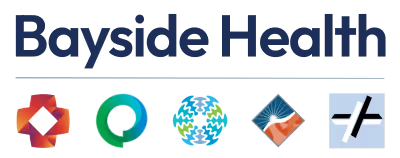Referring personal alarms: A Guide for allied health professionals

Personal alarms are life-saving tools designed to provide quick assistance in an emergency. They are especially beneficial for seniors, people living with disabilities or chronic conditions, and those recovering from surgery, providing peace of mind and supporting independent living. At MePACS, we understand the important role that allied health professionals play in safeguarding client wellbeing.
Recommending a personal alarm is a significant responsibility. It’s a decision that directly influences your client’s safety, independence and quality of life. With so many options and conflicting information available, recommending the right option may seem daunting.
To help you make an informed decision, we’ve answered some of the most frequently asked questions about personal alarms.
1. What are the biggest differences between monitored and unmonitored alarms?
All personal alarms fall into two main categories: monitored personal alarms, like MePACS, and unmonitored personal alarms (also referred to as self-monitored or auto-dial). While both types share the common goal of enhancing safety and providing peace of mind, there are distinct differences in how they operate and the level of support they offer.
When activated, monitored alarms like MePACS connect clients to a dedicated 24/7 emergency response team, staffed by trained professional operators. This means the wearer is guaranteed a fast response in an emergency, day and night.
In contrast, when activated, unmonitored alarms call or message a list of pre-programmed contacts, such as family and friends. This means that the effectiveness and speed of the emergency response rely on the availability of selected contacts.
Key takeaway: Monitored alarms offer a higher level of reliability and faster response.
2. What are the limitations of unmonitored alarms?
The main benefits of monitored alarms like MePACS are the speed of response a client can expect during an emergency and the fact that a trained emergency response operator is always available, day or night.
Unmonitored alarms rely on the availability of an informal support network, such as family, friends or neighbours, to respond. This may leave clients vulnerable if calls for help go unanswered or misdirected.
MePACS personal alarms are backed by our 24/7 Emergency Response Centre. When activated, our monitored personal alarms send an alert to our emergency response centre, where trained professionals immediately assess the situation and organise the right help, fast. This reduces the time it takes to get help, which can make all the difference in an emergency.
3. Do monitored alarms work outside the home, like during travel?
Yes, depending on the device.
The MePACS Mobile Alarm and MePACS Solo Connect (a personal alarm watch) operate on the 4G network anywhere in Australia with good mobile reception, without needing Wi-Fi, providing around-the-clock monitoring when away from home. These GPS-enabled personal alarms provide MePACS with location data, which MePACS shares in an emergency.
4. Are monitored personal alarms covered by the NDIS, HCP, or other funding programs?
The funding available for monitored personal alarms can vary between providers.
MePACS monitored personal alarms can be funded through several state and federal government programs, including:
• The Commonwealth Home Support Programme (CHSP)
• WorkCover
• The National Disability Insurance Scheme (NDIS)
• Personal Alert Victoria (PAV)
• Personal Alert Assistance SA (PAASA)
• TAC
5. How can I explain the benefits of monitoring to clients who don’t see the need for it?
Cost can be a key consideration when selecting a personal alarm and it’s true that monitored personal alarms charge an additional monthly monitoring fee. For MePACS, this covers our 24/7 professional emergency response service and any call charges from the alarm. However, the peace of mind that monitored personal alarms provide is priceless, for both clients and their loved ones.
A monitored personal alarm is connected to a 24/7 emergency response centre which promptly answers every call, day or night. At MePACS, our Australian emergency response team is professionally trained to quickly assess and handle emergency situations, providing reassurance and comfort in an often-stressful time. As part of our duty of care, we stay in contact with the client until help arrives and inform their closest contacts.
MePACS keeps clients' medical details securely on file and updated as needed. In an emergency, we share the relevant emergency information with emergency services so they can tailor their response and prioritise as needed.
When explaining the benefits of a monitored personal alarm service, it’s also important to be considerate of your client’s care needs and ensure that they have all the facts to choose a personal alarm option that is truly the best fit for their requirements.
If your client has higher care needs, a history of falls, an underlying medical condition or if they lack informal carers (volunteers, family or friends), a monitored personal alarm service like MePACS is likely the better option for them.

.jpg)

.avif)
.avif)
